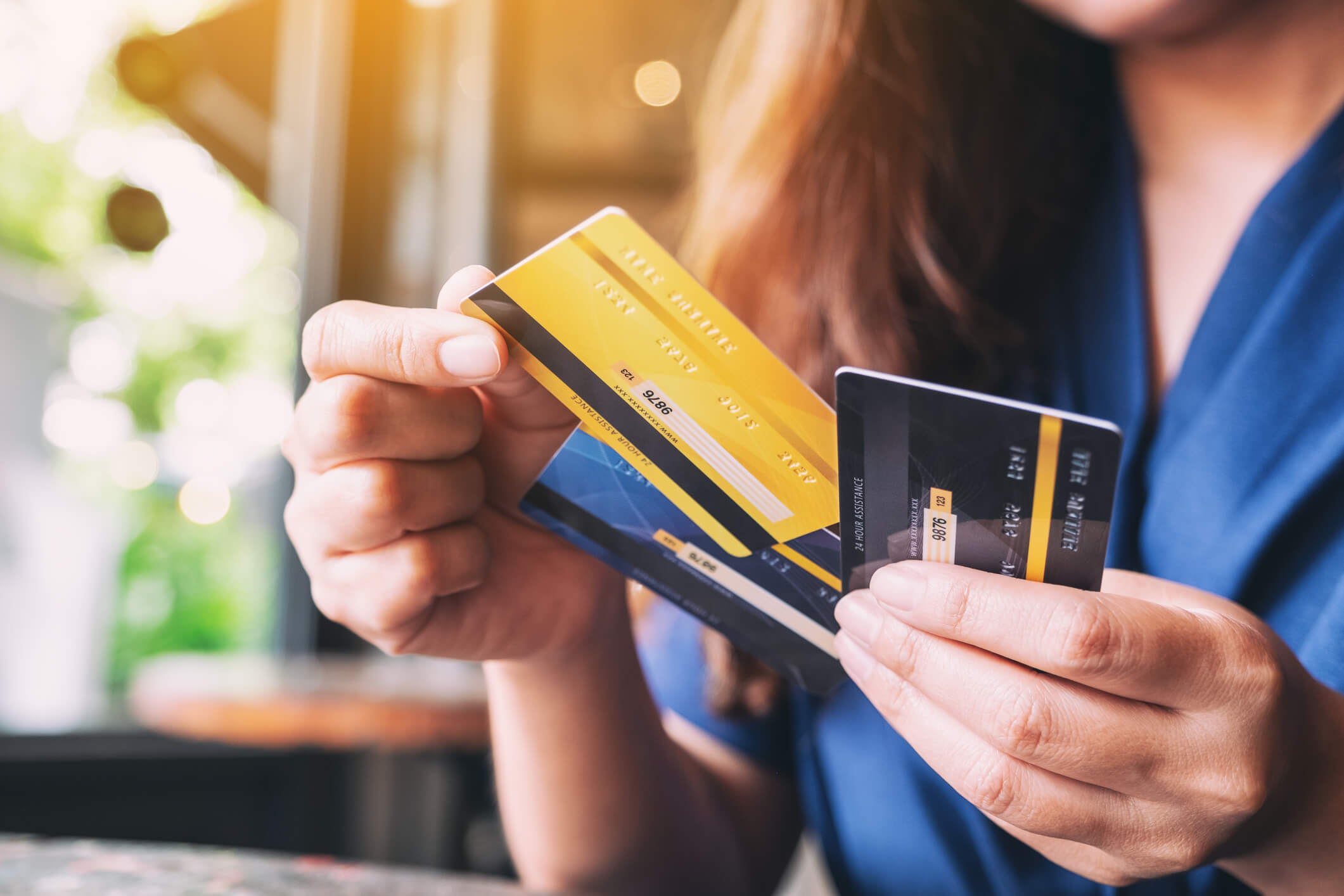Nowadays, hardly any adult lives without some amount of credit card debt. To help focus on your goal of financial freedom, read these 7 simple steps to pay off your debt more quickly and to make smarter spending choices in the future:
1. Check your statements. Paying back credit card debt quickly will not happen unless an individual can figure out how to better manage their purchases made using these cards. A strategic spending plan is necessary to pay off debt and ensure that it does not pile up again in the future. Examine your credit card statements every month and make sure that every fee is essential.

If you are in debt, the first step should be to stop purchasing products with your credit cards. Once you successfully eliminate your debt, checking your statements regularly can prevent you from falling into the same traps that caused the credit card debt in your past. It also allows you to examine your spending habits to reduce your “non-essential” spending.
2. Begin by defining a target. It is fundamental to prioritize paying off the cards with the highest interest rates first. This strategy will save you countless amounts of money that you would be spending on the interest rates. Next, focus on other lines of credit, such as loans and overdraft fees. While it is easy to consistently run up balances in a relatively short timeframe, paying them back requires a great investment of time and self-discipline. Monitor the development of your payments constantly in order to stay on track while remaining encouraged to achieve your goals.

3. Request a lower interest rate. When the interest rate is higher on a credit card, it will take longer to pay off the debt if you only pay the minimum monthly installments. If these rates are simply impossible to manage, consider requesting a lower rate. The best way to achieve this is by calling your credit card provider’s customer service office and explaining your circumstances. Banks would rather you continue paying off the debt as opposed to losing you as a client, or worse, allowing you to default on the balance.
4. Payoff the expensive cards first. The faster an individual pays off high-interest balances, the less it will cost him or her in the long-term. Once one card is paid off, use the monthly surplus to pay higher installments on other credit cards or debit. Continue this process until you eliminate all debt.
5. Pay installments regularly. Credit card debts accumulate interest daily. It is not only important to pay installments regularly but paying more than the minimum payment whenever possible is crucial to spend less overall. Paying as much as you can each month may also lower the amount of interest, which can save you a significant amount of money. Focus on the big picture; paying more than the minimum payment may make your monthly budget tight for a period of time but it will save you money in the end.

6. Budgeting. Budgeting is one of the best ways to save money and pay off credit card debt quickly. It is good practice to regularly examine your monthly costs and search for chances to cut down on your expenses. Devising a monthly strategy through a budget will expedite the debt relief process.
7. Cancel the credit card. If your credit card debt becomes impossible to manage, cancel the card to prevent the temptation to use it while it still has debt. After canceling, continue to pay monthly installments to protect your credit history and minimize interest.
If you are focused on eliminating credit cards and other debts and are thoughtful in your spending, you will have a greater likelihood of living a more stress-free life.
 About Complete Controller® – America’s Bookkeeping Experts Complete Controller is the Nation’s Leader in virtual bookkeeping, providing service to businesses and households alike. Utilizing Complete Controller’s technology, clients gain access to a cloud-hosted desktop where their entire team and tax accountant may access the QuickBooks™️ file, critical financial documents, and back-office tools in an efficient and secure environment. Complete Controller’s team of certified US-based accounting professionals provide bookkeeping, record storage, performance reporting, and controller services including training, cash-flow management, budgeting and forecasting, process and controls advisement, and bill-pay. With flat-rate service plans, Complete Controller is the most cost-effective expert accounting solution for business, family-office, trusts, and households of any size or complexity.
About Complete Controller® – America’s Bookkeeping Experts Complete Controller is the Nation’s Leader in virtual bookkeeping, providing service to businesses and households alike. Utilizing Complete Controller’s technology, clients gain access to a cloud-hosted desktop where their entire team and tax accountant may access the QuickBooks™️ file, critical financial documents, and back-office tools in an efficient and secure environment. Complete Controller’s team of certified US-based accounting professionals provide bookkeeping, record storage, performance reporting, and controller services including training, cash-flow management, budgeting and forecasting, process and controls advisement, and bill-pay. With flat-rate service plans, Complete Controller is the most cost-effective expert accounting solution for business, family-office, trusts, and households of any size or complexity.




